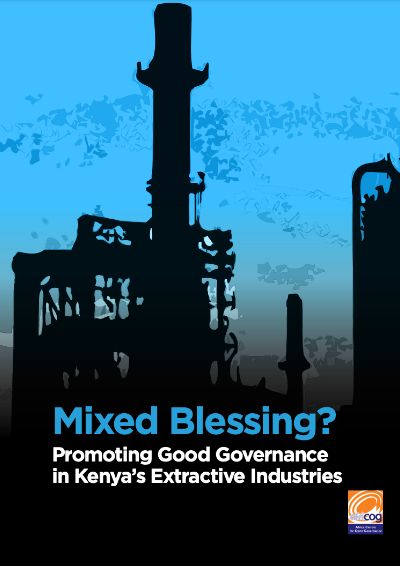Foreward
As Kenya establishes the framework for exploitation of recent discoveries of large oil and gas deposits, the need for good governance in the sector becomes paramount. Related experience reveals that resource-rich developing countries often face a range of challenges in translating the potential benefits from such discoveries into the improved welfare of their citizens. The result is that the abundance of natural resources in most developing countries causes significant
harm rather than bringing the expected benefits. This paradox where natural resource endowments occasion misery instead of plenty is well illustrated by crises in African mineral and oil exporters such as Sudan, Angola, Democratic Republic of Congo (DRC), Chad and Equatorial Guinea.
These countries are often said to be suffering from the ‘resource curse’. This describes a range of tribulations that stalk the exploitation of natural resources amidst bad governance. It manifests itself in political conflict over the resources, declining industries, increased inequality, environmental pollution, exacerbated corruption and weak government institutions that are unable or unwilling to manage the resources effectively.
To avoid going down the same path, Kenya will have to prepare itself well by adopting best practices and establishing strong safeguards in its extractive sector at an early stage. In this analysis, the main focus will be on the oil sector.
It is in recognition of the dangers implicit in sudden access to large mineral resources, given Kenya’s experience of sporadic violent conflict and its extremely poor corruption record, that the Africa Centre for Open Governance (AfriCOG) has produced this report.
We hope that this study will help to inform civil society’s efforts to provide oversight, demand accountability and monitor Kenya’s preparations to become an ‘extractive-industry nation’. The research for this work was accomplished during the latter part of 2013 and early 2014.
